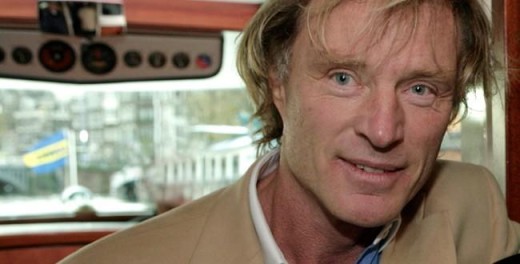
Democratic elections are a means to give the electorate some form of control over what is happening today and tomorrow. Politicians who abandon the charter and platform, they were elected on, just for personal benefit, commit fraud.
Their electorate has every right to protest vigorously, take legal and extra-parliamentarian actions.
In the meantime, for all those politicians who remained loyal to their cause, advice and support from the community are indispensable for success. So let’s formulate some thoughts about the economy. The economy of Curacao and lack of its growth is of everybody’s concern. Can a trend of economic activity be detected over time?
Historical overview: Arawaks, specifically the subgroup Caiquetios, settled on the island of Curacao after leaving Venezuela around 500 A.D.. The Agricultural Revolution hardly affected the Caiquetios. Their economy was predominantly one of hunters, fishers, and gatherers. Only very rare sites of grain cultures were discovered.
Around 1500, the Spanish soldier, Alonso de Ojeda and the famous Italian explorer, Amerigo Vespucci, drafted a map of the South American coast and various offshore islands, including Curaçao. On the island, where they made an emergency stop, they developed, as economic activity, fresh fruit and vegetable cultures, mostly for their from scurvy suffering crews.
Later, the wood of the island-indigenous tree, Lignum Vitae, was exploited to exhaustion for sailing blocks. The island was also denuded of all its mahogany trees for shipbuilding, and the paint industry back in Europe. Tree chickens, “Karakou’s,” were hunted to extinction for their black plume feathers, fashionable on the helmets of the Spanish conquistadores.
After about a century, the Spanish realized that the island did not have enough water to support a large population, agriculture, and there was no gold to be found, so they declared it “useless.” By 1634, Jan van Waalbeeck, a Dutch WIC-explorer, found the island mostly uninhabited and claimed it for his company.
In 1642, Governer Peter Stuyvesant established a poor, and unsustainable plantation culture. Trading slave labor to Spanish colonies looked like the best commercial solution after the “Peace of Munster” of 1648. Unfortunately, the Asiento-based WIC efforts, which started around 1666 by Coymans, ended disastrously in bankruptcy, only six years later in 1672.
By 1713, the WIC had also lost her exclusive shipping rights (the Asiento) to England (Treaty of Utrecht). In 1730, when the WIC monopoly expired, all that remained of the Curacao slave trade was local and domestic business, with local and Spanish merchants of the coast of, what is now, Venezuela and Colombia, as the main players.
After a third bankruptcy of the WIC in 1793, and the dissolution of the Republic of the Seven Low Lands and that of the Batavian Republic. Curacao became British, off and on, till about 1815. A little bit of transshipment was the only business that was meagerly supporting about 10-15,000 inhabitants. Part of the island was leased out to English merchants of New York, who hardly used it.
The Treaty of Paris (1815) returned Curaçao to the bankrupt Dutch West India Company. But in 1864, the island’s slaves were emancipated by Royal decree, causing the total collapse of the already ailing plantation-based economy.
In 1920, oil, in ever higher demand, became the commodity of Venezuela. Curacao’s Unique Selling Proposition of a deep-sea ocean port was beyond any competition and landed the island the Venezuelan refinery business. The oil refinery on the island and oil-related industries became the mainstay of the economy. Curaçao’s population burgeoned from 15,000 to 150,000.
On October 10, 2010, it finally came to be that Curaçao would govern itself as an autonomous part of the Dutch Kingdom, but over a period of the last six years, no economic growth of any kind was realized.
The conclusion: The economy of the island of Curacao, was at best, opportunistic chances for European passer-by sailors, catering to minuscule markets. It was not until Industrial Revolution energy developments that an industry developed and became sustainable to support the lives of tens of thousands of families.
The energy sector on the island is in a state of collapse from Venezuelan’s Bolivarian Revolution, the fall of the world oil prices, and lack of new USP’s of the isle of Curacao. There is nothing more Curacao can offer today to Venezuela that it does not have itself.
A new industry of Tourism, hoping to get Europeans to visit the island for “Sun, Sea, Sand and Sex,” developed since 1980, and is in decline today. The 4S-destinations are losing rapidly and decisively to cultural experiences. Curacao could not provide unique experiences, no great service, or security experience and is painfully losing market share to other Caribbean islands and Latin America.
If Curacao does not develop Unique Selling Propositions soon, and of competitive high quality, its economy of the 20th century may soon revert to that of the 18th, with less than 10,000 people to support. There is more than enough to work with, but it needs a leader to get it done. Politicians what are you waiting for??????
By Jacob Gelt Dekker
Opinion columnist for Curaçao Chronicle


Wat een onzinnig antwoord, het heeft m.i. niks met ‘normaal’ te maken. Vind mezelf eigenlijk best normaal en vond het erg leuk de taal te leren, net zoals Spaans en Portugees, dus spreek voor jezelf ajb.
Abraham, er zijn zo weinig mensen die papiaments kunnen lezen, dus daar begint een normaal mens niet aan. Ik denk niet dat Jacob jou nog kent. En ja, hij leeft nog. Zo goed?
Jacob schrijft voor de Curacao Chronicle, een Engels talige krant, dus lijkt mij logisch.
Voor de knipselkrant ondoenlijk alle art te gaan vertalen.
Jacob datje geen papiament’s kan weet ik, ( ik ook niet “dialectie probleem)maar waarom alles in Engels, ik ben bij een meeting geweest 14 jaar geleden in otro alles ging in het NL , later heb ik je nog eens mogen ontmoeten in jouw piano bar, ken je mij nog !!!!! leef je eigenlijk nog wel ?.